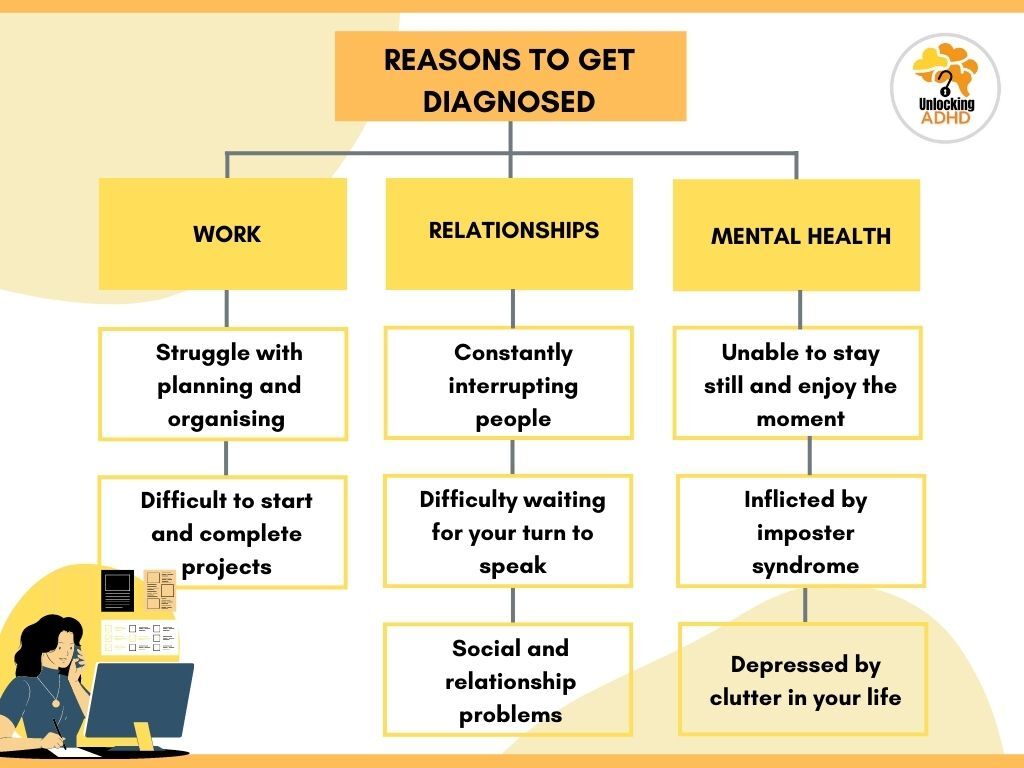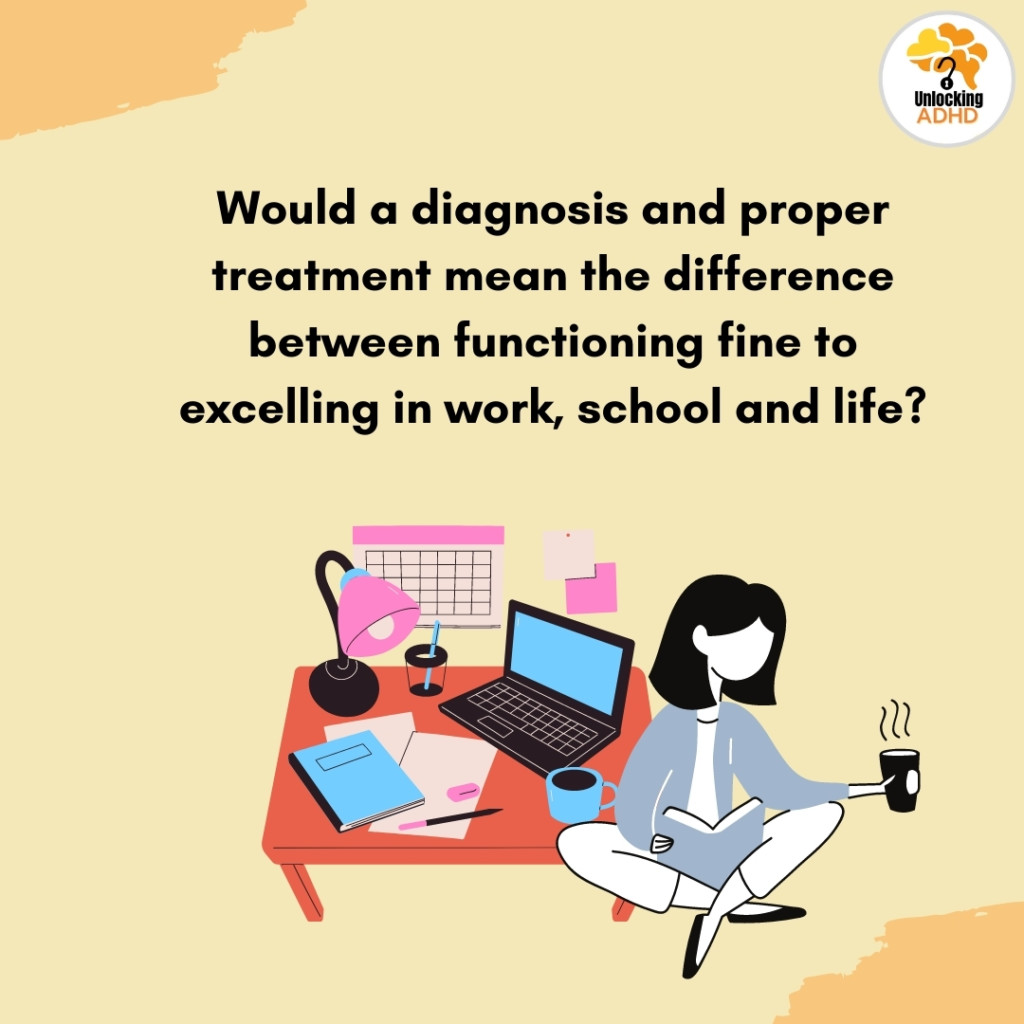Unlocking ADHD writer Tang Jo Ee explores whether an assessment or diagnosis if we only have mild ADHD symptoms.

The clock ticks towards the submission deadline as I struggle to complete my article. My head is filled with random thoughts fighting for attention and I cannot focus on the task at hand. On top of this, I should have left the house for a dinner date 10 minutes ago.
These are the common signs of someone with mild ADHD – always being late, missing deadlines and being distracted by thoughts.
But is it ADHD or am I just looking for an convenient excuse and should actually just be buck up to get my act together?
After all, I am gainfully employed, loved, healthy and happy – would it really matter whether I sought assessment and treatment for mild ADHD symptoms?
If you recognise the signs and are wondering the same as me because life is generally manageable except for some hiccups, here are some commonly asked questions about ADHD to help you decide what to do next!

What are possible reasons to get diagnosed for mild ADHD?
- Work: Do you struggle with planning and organising at work? Is it difficult to start or complete tasks? Are any of the above affecting your career?
- Relationships: Are you constantly irritating friends and family by interrupting the conversation or sentence halfway? Do you have difficulty waiting for your turn to answer questions in school or speak at the workplace meeting? Does your partner complain that you do not listen to what they say? Are the above actions causing social and relationship problems?
- Mental health: Do you find yourself unable to stay still and enjoy the moment? Does compromised productivity at work have you inflicted by imposter syndrome and you feel like you cannot live up to your own name? Is the overwhelm from the clutter in your life driving you to depression?
If the above resonate with you, diagnosis and appropriate treatment (in the form of behaviour therapy or medication, for example) could help you improve your work performance, relationships, mental health, and other aspects of your life.

What are reasons that a diagnosis may not be needed in mild cases?
- Self-help: If you have found a way to deal with the challenges with the help of productivity apps, exercise, the right nutrition or self-care, such that various aspects of your life are in the pink, that’s good!
- Mild ADHD symptoms may nly cause minor impairment in your life. Getting a diagnosis will impact your life more negatively than living without treatment, then managing your situation without a diagnosis may work for you.
Can I get a diagnosis without an assessment?
To get a diagnosis, one has to be assessed by a psychiatrist or psychologist in a clinical setting.
However, if you have reservations about taking the plunge, you can start with a simple online non-diagnostic self-test.
Please note that it not definitive and you would still need to see a mental health professional for a formal diagnosis.
Who can I speak to about ADHD and my suspected symptoms without getting a professional assessment done?
There are various reasons why we may be unwilling to see diagnosis straight away. This could be worries about heathcare costs and fear of the results.
If you suspect mild ADHD, consult a mental health professional and share your suspicions!
You can als see your family doctor, who may refer you to a psychiatrist for formal diagnosis if necessary.
Can I get medication without an assessment?
Medication for treating ADHD such as Ritalin and Concerta are only available on prescription in Singapore. This means that without assessment and diagnosis, we are not able to purchase medication to treat ADHD symptoms.
A diagnosis thus avails us of any medication we may need to treat our condition, improving our performance and quality of life.
Living with mild ADHD – from doing okay to excelling

Thankfully, we have since moved on to being high performers in school and work, and having better relationships.
The million dollar question: Would a diagnosis and proper treatment mean the difference between functioning fine to excelling in work, school and life?



















































